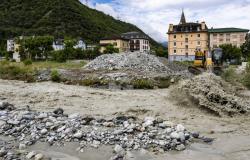Pesticides will soon be banned on the eight Montreal golf courses, which until now benefited from an exemption from the City’s regulations having already prohibited the sale and use of such products in the rest of the territory, two years ago .
Published at 11:36 a.m.
This was announced by the Plante administration on Thursday, specifying that the measure, a first in Canada, will be effective “as of the 2025 season”. In the short term, this summer, golf courses will be able to continue using pesticides, but this will be the last season where they will be authorized.
Some exceptions will remain, however, as long as they are “limited in time and precise in their scope”. Thus, mecoprop, which is mainly used to control plantain, will continue to be accepted between April 15 and June 15. Chlorothalonil, which attacks gray or pink snow mold, will be authorized between October 15 and October 1.er December of each year.
Tests of regular activities without pesticides have already been carried out over the past two years at the Montreal Municipal Golf Course, in Saint-Léonard, a process whose results “proved positive,” according to the City. The establishment therefore already no longer uses pesticides.
At the executive committee, the head of the environment and ecological transition, Marie-Andrée Mauger, recalled that “pesticides are considered one of the main causes of the decline in global biodiversity and are extremely harmful to human health. .
“Despite these findings, we are seeing an increase in the use of these products in Quebec and elsewhere. As a metropolis, we must set an example by further limiting the use of pesticides,” she said.
Without giving further details, Montreal nevertheless assures that it will support golf course operators “in this transition to pesticide-free practices by providing them with appropriate support and resources.”
For safety reasons, operators of rail transport corridors will also continue to be exempt from the regulation on pesticides “in order to facilitate the maintenance of railway tracks and their right-of-ways, testing of alternatives to banned pesticides will not be permitted.” ‘being not revealed conclusive,’ it says.
Montreal was the first Quebec municipality to ban the sale of pesticides containing 36 active ingredients, including glyphosate. However, it took time to enforce its rules. Nearly three months after it came into force, in March 2022, at least eight hardware stores still had prohibited products on their shelves, and the City had not yet carried out any inspections.
Throughout 2022, the City of Montreal then carried out more than a hundred in-store inspections, according to data obtained by La Presse, in order to enforce its regulations.
With Ariane Krol, The Press






